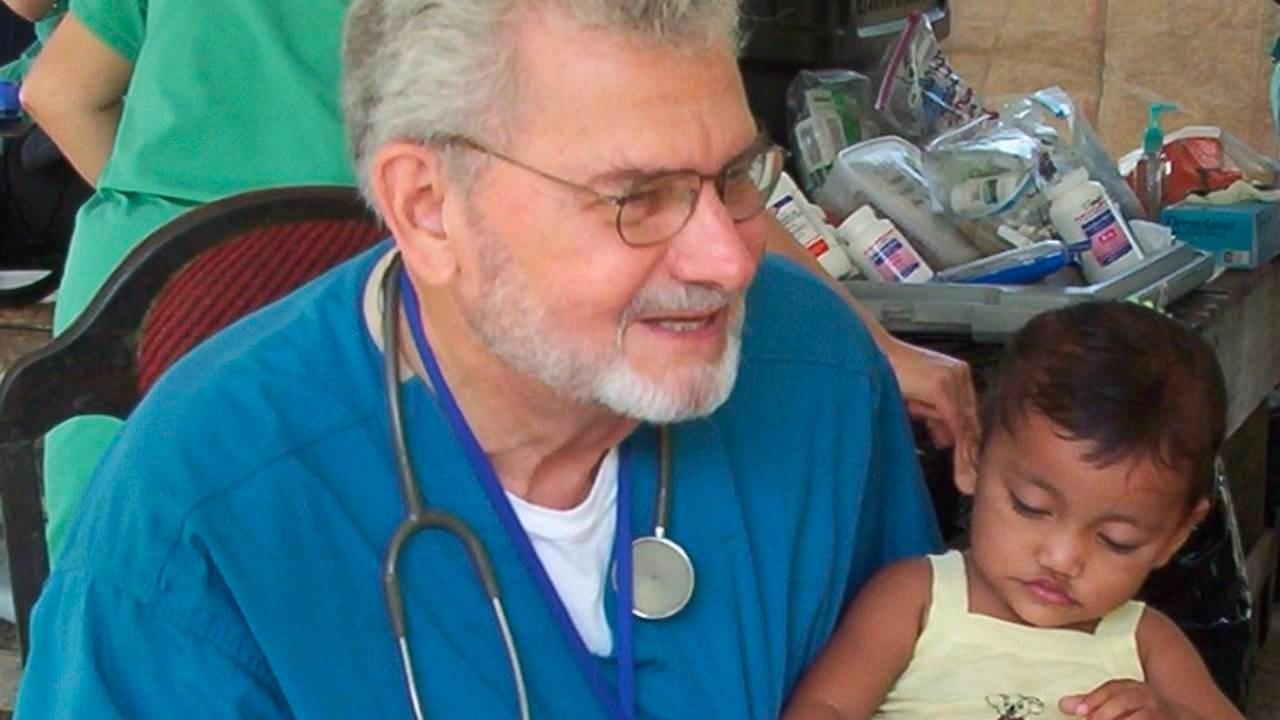
Taming Overwhelm Step 1 - Lessons from the Tsunami.
I don’t know a single physician who hasn’t felt overwhelmed at some time, and commonly, felt it very often. For a long time, I was too busy keeping my own head above water to notice how/what others were doing to deal with it. Surprisingly then, it was actually during a moment of overwhelm that I discovered another possible perspective.
A few weeks after the 2004 Tsunami that leveled much of Indonesia's Banda Aceh province, I worked with an NGO medical team cycling groups every 2 weeks among the displaced people and scattered remains off Sumatra's tip. Gone was most of the entire area’s infrastructure – including healthcare.
We worked really long hours in intense heat. We listened to individual's stories of where they were when the 3 successive waves came through and who in their family survived, and how. We bandaged wounds, treated infections with antibiotics, found temporary hypertension and diabetic supplies for those who lost medications, found rides to the nearest hospital, and networked some into the existing public health system. We didn't begrudge the work though the needs were understandably overwhelming.
After one of those 12-hour days, while sitting on the floor in our temporary home, restocking our medicine and supplies into an action-packer, a local leader came to see us. He asked us to see a couple of people at his home that night. Dr. Jim, an old-school surgeon who more resembled a primary care doc, and I went with one of the newly stocked action packers. He spoke Bahasa Indonesia; I had to use one of our paid translators.

As we entered the home, numerous people started packing in to await their turn. Only hot air was flowing in through windows. And eventually, we were packed in like sardines, and the airflow ceased. It was suffocatingly hot. I was exhausted. Despite my compassion, I wanted to go home, shower and sleep. There was no end of patients in sight. So, as I would do in a busy clinic, I put my head down and plowed through, picking up the pace. At some point, I realized we hadn't made a dent in the numbers. We wanted to honor those who needed help and who had been traumatized along with the local leader, but I was feeling completely overwhelmed. I looked over at Dr. Jim in hopes of making eye-contact that conveyed desperation to leave. What I found were his eyes locked onto the man in front of him. He was smiling, nodding, and intently listening like they were the only two souls in the room. I stared in wonder. I looked back at the woman sitting in front of me and really tried to focus on her while allowing the throngs behind her to fade.
Dr. Jim was fully present with one person at a time. We were in the same circumstance. My focus had been on my discomfort, and my thoughts were something along the lines of “We are never going to finish.” His focus was on the person sitting in front of him, and his thoughts were more along the lines of, “I am privileged to help this person.” Did I mention Dr. Jim was in his mid 70's at the time? Lessons learned by observation often make a lasting impression.

Now certainly, I don't want to overplay our role in the health of those we saw. We coordinated with the global disaster relief teams to do our small part and were responsible by bringing our own supplies. Still, if we only gave a bandage and ointment or allowed them to relay their traumatic stories, they knew they were valued and cared for in a time of utter chaos. I also don't want to appear to glorify working ridiculously long hours, which would be unsustainable. At times, though, it's okay to rise to the occasion and do what feels right for the needs around you.
Two reflections come to mind when I think back. A story written by Loren Ensley is about starfish being stranded as the tide was going back out. “Son,” a man said, “don’t you realize there are miles and miles of beach and hundreds of starfish? You can’t make a difference!” After listening politely, the boy bent down, picked up another starfish, and threw it back into the surf. Then, smiling at the man, he said….“I made a difference for that one.” The other reflection was Mother Teresa’s response to the vast numbers of people needing help, “Never worry about numbers," she said, "Help one person at a time and always start with the person nearest you.” I watched Dr. Jim do just that.
My main message in the first of the overwhelm series is this: One of the first things we can do when feeling overwhelmed is to come back to the present. Be fully present with the person or task at hand. Sweep away other thoughts clattering in your head for attention.
We never did make it through all of the people that night. At some point, the leader told everyone we were done for the night. As they exited, the refreshing air flowed again through the windows - and, like so many other things, seemed very different than just a couple of hours before.
Where can you adjust your focus and be more present?
Have a joy-filled week! Tonya
Look into my 6-week coaching reset for residents and faculty. Click here to learn more.
Join Weekend Reads
Weekly insights, tips, and tools for physicians who want to thrive—plus a dash of fun.
We hate SPAM. We will never sell your information, for any reason.



